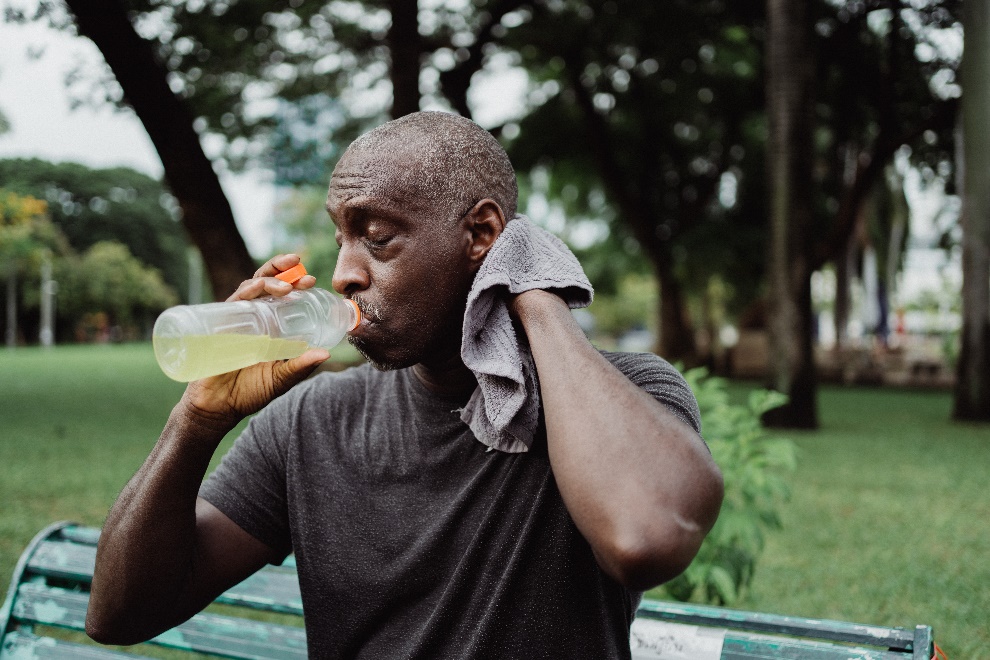No Sweat! Understanding and Managing Excessive Sweating
Sweating is a natural bodily function that helps regulate our body temperature and keeps us cool. It's a process that most of us take for granted, but for some, sweating can become a daily struggle. Excessive sweating, also known as hyperhidrosis, can have a significant impact on a person's life, causing discomfort, embarrassment, and even affecting their self-esteem. In this article, we will explore the causes of excessive sweating, its impact on individuals, and various strategies for managing this condition.

The Basics of Sweating:
Before we talk about excessive sweating, it's essential to understand how sweating works in our bodies. Sweat glands, which are distributed all over our skin, play a pivotal role in this process. When our body temperature rises due to physical activity, hot weather, or stress, these glands produce sweat, a mixture of water, salt, and various other compounds. As the sweat evaporates from our skin, it cools us down, helping us maintain a stable body temperature.
Understanding Excessive Sweating:
Excessive sweating, or hyperhidrosis, is a condition characterized by an abnormally high level of sweating that exceeds what is necessary for regulating body temperature. It can affect various parts of the body, including the palms, soles of the feet, underarms, and face. Hyperhidrosis can be classified into two main categories:
Primary Hyperhidrosis: This type of excessive sweating typically has no underlying medical cause and is often linked to genetics. It tends to start during childhood or adolescence and can persist throughout a person's life. Primary hyperhidrosis usually affects specific areas of the body, such as the palms, soles, or underarms.

Secondary Hyperhidrosis: Unlike primary hyperhidrosis, secondary hyperhidrosis is usually a symptom of an underlying medical condition or medication. It can develop suddenly at any age and affects the entire body. Conditions such as diabetes, hyperthyroidism, menopause, or certain medications can trigger secondary hyperhidrosis.
The Impact of Excessive Sweating:
Excessive sweating can have a significant impact on an individual's physical, emotional, and social well-being. Here are some of the challenges that people with hyperhidrosis may face:
Discomfort: Constant wetness and moisture can lead to skin irritation and discomfort. It can also make everyday activities such as writing, holding objects, or shaking hands with others challenging.
Emotional Distress: The embarrassment and self-consciousness that often accompany excessive sweating can take a toll on a person's mental health. It may lead to social withdrawal, anxiety, and even depression.
Interference with Daily Life: Hyperhidrosis can interfere with daily activities, from choosing clothing that hides sweat stains to avoiding social situations where sweating may be more noticeable.

Managing Excessive Sweating:
Fortunately, there are various strategies and treatments available to help manage excessive sweating and improve the quality of life for individuals with hyperhidrosis. Here are some options to consider:
Topical Antiperspirants: OTC and prescription-strength antiperspirants with aluminum chloride can help reduce sweat production when you dab it on the area affected. They work by blocking the sweat ducts temporarily.
Iontophoresis: This non-invasive treatment involves using a device that emits a low-level electrical current to the affected area, such as the hands or feet, while they are submerged in water. Iontophoresis helps reduce sweat production over time with regular treatments.
Botulinum Toxin Injections: Injections of botulinum toxin (Botox) can temporarily block the nerve signals that trigger excessive sweating. This treatment is effective for areas like the underarms and can provide relief for several months.
Oral Medications: In some cases, oral medications, such as anticholinergic drugs, may be prescribed to reduce sweating. However, these medications can have side effects and may not be suitable for everyone.
Surgical Options: For extreme cases of hyperhidrosis that fail to respond to other medications, surgical interventions like sympathectomy (cutting or clamping the sympathetic nerves responsible for sweating) might help. These procedures are typically resorted to in severe cases due to their potential risks and complications.

Lifestyle Modifications: Making lifestyle changes can also help manage excessive sweating. Wearing breathable clothing, using moisture-wicking fabrics, and staying well-hydrated can all make a difference. Additionally, managing stress through relaxation techniques like meditation or yoga may help reduce stress-induced sweating.
Alternative Therapies: Some individuals find relief through alternative therapies such as acupuncture or herbal remedies. While these approaches may not have scientific backing, they can be worth exploring for some individuals.
Seeking Help
family care doctors online Lemont at TelMDCare can diagnose the type and severity of hyperhidrosis and recommend the most appropriate treatment options based on individual needs. Avail our online video doctor consultation from the comfort of your home today!